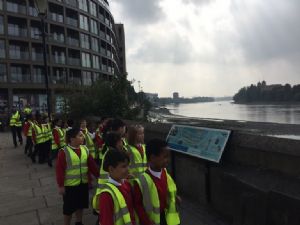Geography
Curriculum Intent
‘A high-quality geography education should inspire in pupils a curiosity and fascination about the world and its people that will remain with them for the rest of their lives. Teaching should equip pupils with knowledge about diverse places, people, resources and natural and human environments. Geographical knowledge, understanding and skills provide the frameworks and approaches that explain how the Earth’s features at different scales are shaped, interconnected and change over time.’
Primary National Curriculum for Geography 2014
Geography teaches an understanding of places and environments. Through their work in geography, children learn about their local area and compare their life in this area with that in other regions in the United Kingdom and in the rest of the world. They learn how to draw and interpret maps and they develop the skills of research, investigation, analysis and problem-solving. Through their growing knowledge and understanding of human geography, children gain an appreciation of life in other cultures. Geography teaching also motivates children to find out about the physical world and enables them to recognize the importance of sustainable development for the future of mankind.
We want all children to:
- Help children acquire and develop the skills and confidence to advance their geographical understanding.
- To develop an understanding and use of geographical language to communicate their understanding of the world around them.
- Stimulate the children’s interest in and curiosity about their surroundings.
- Nurture a sense of wonder about the world.
- Understand the processes that give rise to key physical and human geographical features of the world, how these are interdependent and how they bring about spatial variation and change over time.
- Develop the children’s knowledge, to encourage a sense of responsibility for the environments and people of the world we live in, so they will think about how it can be improved and sustained.
- Develop a sense of place and identity by learning about the United Kingdom and its relationship with other countries.
- Develop a variety of other skills, including those of enquiry, problem solving, ICT, investigation and how to present their conclusions in the most appropriate way
The Curriculum
Early Years Foundation Stage (EYFS)
The years from birth to age five provide a first opportunity to see how your child interacts with their environment — and how the environment influences them. The early learning goals at EYFS aim to guide children onto making sense of their physical world and their community by exploring, observing, and finding out about people, places, technology and the environment.
Key Stage 1
In Years 1 and 2, children are asked to begin to develop a geographical vocabulary by learning about where they live, as well as one other small area of the United Kingdom and a small area in a contrasting non-European country. They learn about weather patterns in the United Kingdom and hot and cold areas of the world. They will use ICT, world maps, atlases and globes, simple compass directions, aerial photographs and plans, as well as simple fieldwork and observational skills.
Key Stage 2
In Years 3 to 6, the geography curriculum builds and expands on previous knowledge. There are three focus areas:
● Locational knowledge
● Place knowledge
● Human and physical geography
Locational knowledge examines latitude, longitude and time zones. Your child will use maps to focus on Europe, North and South America, concentrating on regions, key physical / human characteristics, countries, and major cities. They will also work on locating the counties and cities of the United Kingdom and start to explore their human and physical characteristics.
Children also examine geographical similarities and differences by comparing the geography of a region of the United Kingdom with a region in a European country, and with a region in either North or South America. This is part of the place knowledge aspect of the curriculum.
For human and physical geography, children are taught to describe and understand key aspects of geography, for example: climate zones, rivers, mountains, volcanoes, earthquakes, the water cycle, types of settlement, economic activity and the distribution of natural resources.
The curriculum overview for the school is as follows:
| Term 1 | Term 2 | Term 3 | Term 4 | Term 5 | Term 6 | |
| Year 1 | Our Local Area | The United Kingdom | Beside the sea | |||
| Year 2 | Life in Kenya | Planet Earth (1) | Planet Earth (2) | |||
| Year 3 | Settlements and Land Use | Climate and climate zones | Europe | |||
| Year 4 | Amazon: Rivers and Rainforests (1) | Amazon: Rivers and Rainforests (2) | The USA |
|
||
| Year 5 | Asia: Mountain, Volcanoes and Earthquakes (1) | Asia: Mountain, Volcanoes and Earthquakes (2) |
|
Biomes and Vegetation
|
||
| Year 6 | Mapping the World | Global Challenges: Climate Change | Global Challenges: Trade |
Recent Projects
Year 3 water explorers
Year 3 travelled to Hammersmith to become 'Water Explorers'. They learnt about how important the River Thames is to the people of London and how important water is for planet Earth. Did you know that roughly 70% of the Earth is water? That is roughly the same percentage of water that makes up the human body. Year 3 were amazed to find out that because of the water cycle it's possible that the water we drink today is the same water drank by dinosaurs millions of years ago!

How Parents Can Help
When out and about in your local area, you can help your child geographically by chatting about local physical features, attractions and activities. You might even like to develop this idea by asking them to provide a tourist guide for their local area for visiting relatives.
On a journey, you can share the road map or map phone app with your son or daughter so they can follow the route while you talk about where you are going. Alternatively, ask them to draw a map of their journey to school or the local shop, including any natural or man-made features along the way.
Holidays are an ideal opportunity to compare the location with their home area — you might ask your child to talk through five similarities and differences, for example. Holidays also provide an opportunity for a museum visit or a trip to a tourist attraction.
Closer to home, use anything at your disposal! Magazines, TV, films and even some computer games can provide your child with a view of distant places. They enable your child to be transported instantly to another place. Prompt their thinking with questions, such as: What might the weather be like in this place? Why might the road have been built where it is? The list of questions is endless and will lead to all sorts of discussions which will really help to develop curiosity about, and understanding of, the world.
Further Support And Useful Websites
The BBC Bitesize websites link to videos, games and information a wide range of geographical knowledge:
The Geographical Association is the leading organisation supporting geographical teacher in the UK. Their resources are available at:
The Royal Geographical Society has also published a wealth of resources to help teachers and parents:
 Gateway Academy
Gateway Academy